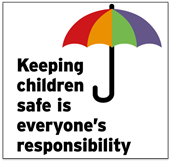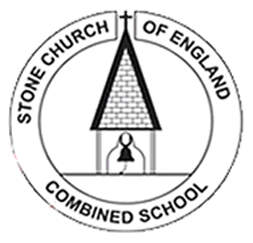Safeguarding

Designated Safeguarding Leads – Mrs B Jones (Co- Headteacher)
Additional Designated Persons - Mrs C McCollum, Co- Headteacher, Mrs A Loxley, Business Manager, Mrs R Seivwright , Deputy Headteacher. and Ms T Craib, Pastoral Support Officer
Safeguarding Governor - Mrs A Foy - afoy@stone.bucks.sch.uk
DSLs (ID 1061)
-
Mrs C McCollumDesignated Safeguarding Lead
Mrs C McCollum
-
Mrs A LoxleyAdditional Safeguarding Lead
Mrs A Loxley
-
Miss T CraibAdditional Safeguarding Lead
Miss T Craib
-
Mrs R SeivwrightAdditional Safeguarding Lead
Mrs R Seivwright
-
Mrs B JonesCurrently on maternity leave: Dec 24 - Dec 25)
Mrs B Jones
-
Mrs A FoySafeguarding Governor
Mrs A Foy
DSLs (ID 1061)
Our Child Protection policy can be found on our policies page: Policies
A link to Keeping Children Safe in Education can be found here
/i/video/Stone_Church_of_England_Combined_Primary_School_safeguarding_powepoint_website1_pptx.mp4
The school has a responsibility for ensuring children receive the right help at the right time. We have a duty to refer to Early Help provisions or Social Care if there are concerns for a child's care of welfare or in cases of suspected abuse or neglect.
Unless circumstances dictate otherwise, we believe in open communication and discussing our intentions with parents when there is a concern about their child. In the event we are approached by social services or another safeguarding body, we collaborate with them to support their investigation, and it remains their responsibility as lead professionals to inform parents about their concerns.
It is not uncommon for distressed or anxious children to confide in us when seeking help regarding issues related to their home life. We always emphasize to these children that we cannot keep secrets and are obligated to act on any information that suggests they may be in danger. The same principle applies if an adult discloses information that pertains to the serious harm of any child.
Keeping children safe is our highest priority and we expect all staff, governors, volunteers and visitors to share this commitment. Anyone with a concern about a child, however minor it may seem, should report it immediately to a designated person.
Our core objective is to ensure that all children within our care are safe, happy, and achieving. If you have any questions or would like further information about our safeguarding practices, please do not hesitate to contact one of our safeguarding leads.
Online Safety
What is Online Safety?
Online Safety is a term which means not only the internet but other ways in which young people communicate using electronic media, e.g. mobile phones. It means ensuring that children and young people are protected from harm and supported to achieve the maximum benefit from new and developing technologies without risk to themselves or others.
Online Safety is an important part of our procedures to keep children safe at Stone . We work with our support provider Turn it On, to help safeguard pupils from potential dangers or unsuitable material.
At Stone Church of England Combined, we use the program 'Securus' to support our monitoring systems. The Securus monitoring system provides DSLs with real-time alerts whenever any activity is flagged as inappropriate on a school device. This allows us to intervene promptly and take appropriate action to address any concerns that may arise. Any breaches to our filtering systems will be logged and action taken to block further words, phrases or sites. We believe that being proactive in monitoring online activities is crucial to maintaining the safety and welfare of our students and staff while they are using school devices.
To further enhance our monitoring capability, one of our deputy Designated Safeguarding Leads (DSLs) dedicates time each week to analyse Securus data and identify any patterns or trends that may need attention. This DSL then shares their findings with our safeguarding team, enabling us to collectively assess the data and make informed decisions regarding future actions and policies.
Online Safety is taught to all pupils explaining and demonstrating how to stay safe and behave appropriately online. All pupils sign an acceptable use agreement at the beginning of the school year in order to ensure safe use. Staff sign a similar agreement and we expect all adults who work in school as volunteers to share our standards.
Staff and pupils receive annual training on the risks online. Our computing curriculum also includes extensive training for pupils on how to stay safe. Some of materials used come from the excellent “Think you Know” website, which is the home site of the Child Exploitation Online Protection Centre, a police department. We advise parents to visit their site and the other links below for support and advice.
In school, we also share the following rules recommended by Childnet International as a way of remembering the key messages:
Be SMART online
Safe: keep safe by being careful not to give out personal information such as your full name, email address, phone number, home address, photos or school name to people you are chatting to online.
Meeting: meeting someone you have only been in touch with online can be dangerous. Only do so with your parents' or carers' permission and even then only when they can be present.
Accepting: accepting emails, IM messages or opening files, pictures or texts from people you don't know or trust can lead to problems. They may contain viruses or nasty messages!
Reliable: information you find on the internet may not be true, or someone may be lying about who they are.
Tell: tell your parent, carer or a trusted adult if someone or something makes you feel uncomfortable or worried, or if you or someone you know is being bullied online.
Please look out for parent workshops on helping children to stay safe which we offer annually.
In 2024 - we had ECP Safeguarding deliver our parent workshop. If you would like copies of their handout, please contact the school office.
To view our Online Safety and ICT Acceptable Use policies please visit our policy page.
Personal Safety
With the help of the friendly dinosaur Pantosaurus, talking PANTS is a simple way to teach your child how to stay safe from abuse. You’ve probably already talked to your child about things like crossing the road safely. Talking to them about how to keep their own bodies safe is just as easy with the NSPCC PANTS rules.
Privates are Private
Your underwear covers up your private parts and no one should ask to see or touch them. Sometimes a doctor, nurse or family members might have to , but they should always explain why and ask you if it's OK first.
Always remember your body belongs to you.
Your body belongs to you. No one should ever make you do things that make you embarrassed or uncomfortable. If someone asks to see, or tries to touch you, underneath your underwear, say 'NO' - and tell someone you trust and like to speak to.
No means No
No mean No and you always have the right to say 'No' - even to a family member or someone you love. You're in control of your body and the most important thing is how YOU feel. If you want to say 'no', it's your choice.
Talk about secrets that upset you
There are good and bad secrets. Good secrets can be things like surprise birthday parties or presents for other people. Bad secrets make you feel sad, worried or frightened. You should tell an adult you trust about a bad secret straight away.
Speak up - someone can help
Talk about things that make you worried or upset. If you ever feel sad, anxious or frightened, you should talk to an adult you trust. This doesn't have to be a family member , it can also be a teacher or a friend's parent - or even childline
More information can be found here:
/docs/simple-conversations-to-keep-your-child-safe-from-abuse.pdf
https://www.nspcc.org.uk/keeping-children-safe/support-for-parents/pants-underwear-rule/
Water Safety
We would like to emphasise the importance of water safety for our students. With Buckinghamshire being surrounded by rivers, canals and other waterways, it is crucial that our children understand the potential risks associated with being near water.
As part of the 2014 National Curriculum in England, students in Key Stage 2 will be attending swimming lessons to ensure they meet the statutory guidelines for swimming proficiency. This is not only a requirement but also a vital life skill that could one day save their lives.
Please also find guidance from Bucks School Swimming Partnership published in July 2024
Road Safety
We are aware many of children travel to school by car, bike and buses.
We will talk about road and travel safety with your children ensuring we cover topics such as crossing the road/ wearing a seat belt when we go on school trips/local outings as well as covering it in our PHSE curriculum.
Whilst families are travelling in cars - It is crucial that all children are seated in a suitable seat or car seat that is appropriate for their age, height and weight. This measure is not only a legal requirement but more importantly, a vital step in keeping our young passengers safe in the event of a collision or sudden stop.
It is essential that everyone in the vehicle, both children and adults, wear a seatbelt at all times while the car is in motion. Seatbelts significantly reduce the risk of injury in the unfortunate event of an accident and should be treated as a non-negotiable safety measure.
Please remind your children that it is crucial to allow the driver to concentrate fully on the road ahead without distractions. Encouraging good behaviour and adherence to safety guidelines from an early age can help instil lifelong habits that prioritise safety and responsibility.
Farm Land Safety
As we are located in Buckinghamshire, surrounded by beautiful countryside and farmland- it is important that we stay safe when venturing into these rural areas with your children.
It is crucial to be aware of the signs that indicate public access while in the countryside. By observing and understanding these signs, you can ensure that you are respecting the land and staying within designated areas.
Additionally, farms may have signs warning of potentially dangerous animals, such as bulls, in certain fields. It is essential to heed these warnings and maintain a safe distance from any animals you may encounter while out exploring the countryside.
We highly recommend keeping dogs on leads when walking through areas where animals are grazing. This not only protects the livestock but also ensures the safety of your pets and prevents any potential incidents from occurring.





